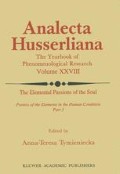Abstract
Let me open by proposing for our collective meditations the myth relating the origin of the laurel crown — mark of poetic (and more generally literary) excellence and achievement, and insignia of the god of poetry (as god of much cognate else) himself as well.
Access this chapter
Tax calculation will be finalised at checkout
Purchases are for personal use only
Preview
Unable to display preview. Download preview PDF.
Notes
This is the version of the myth given in Robert Graves’ The Greek Myths (21. k), citing Apollodorus (i. 7. 9) and Plutarch (Agis, 9). Ovid’s version is, of course, quite different, attributing the metamorphosis to Daphne’s father, the river god, Peneius. (By the bye, Graves refers to Daphne as a mountain nymph, but I have taken the liberty of following Ovid on this point, for aesthetic reasons. I do not, however, think this changes anything substantial, at least so far as my reading of the tale goes.) Graves notes that, in the older, Greek versions, Gaia does not actually transform Daphne into a tree, but spirits her off to Crete, leaving the tree behind in her place. On Crete, Daphne became known as Pasiphaë, “she who shines for all”: something of Apollo would seem to have stuck after all. Moreover, on Crete, she was compelled to couple with the Bull of King Minos, giving birth to the Minotaur and setting the stage for yet further ramifications and complications — a labyrinth of allusions, cross-references, versions and reversions.
Martin Heidegger, An Introduction to Metaphysics, trans. Ralph Mannheim, New Haven, 1959 (Yale UP paper ed.), p. 13.
Let me stress, here, that I believe Freud’s discovery of the representational (because symbolic, symptomatic, sign-bearing) dimension of Eros to be real and important, as is its temporal corollary, the moment of “repetition”. But I think the signing, and thus also the temporality of the signing, more complex and more open-ended than that — the point I try to make in the text.
This echoes — deliberately — Jacques Derrida’s opening remarks on reading Plato in “La pharmacie de Platon”, La dissémination, Paris, 1972, p. 74, where he observes that it has taken us nearly twenty-five centuries to begin to see how Plato’s Phaedrus, for instance, is to be read — a circumstance that suggests that we yet have to read it even now.
I refer here to Roland Barthes’s Le Degré zéro de l’écriture, where “white writing” is discussed as an option for twentieth-century writers like Camus and Sartre eager to sanitize their writings of the overdetermined “literariness” of the idiom they inherit.
As we learn in The Marriage of Heaven and Hell, such a gnostic emphasis on the creative power of the edenic serpent is wholly in keeping with Blake’s own revisionary understanding both of Genesis itself and of the Miltonic amplification (or apology).
William Wordsworth, preface to the Lyrical Ballads, ed. W. J. B. Owen, 2nd ed., Oxford, 1969, p. 157. Wordsworth himself notoriously adds, however, that these “powerful feelings” become poetry only belatedly — as “recollected in tranquillity”, p. 173.
Edmund Spenser, stanza 1 of the proem to “The Legende of the Knight of the Red Crosse, or of Holinesse”, The Faerie Queene, Yale UP paper ed., p. 39.
William Blake, The Marriage of Heaven and Hell, Penguin paper ed., p. 183.
I owe this thought about Proust to Roland Barthes’s preface to his own Essais critiques of 1964.
Martin Heidegger, “The Origin of the Work of Art”, in Poetry, Language, Thought, New York, 1971 (Harper & Row paper ed.), p. 39.
Author information
Authors and Affiliations
Editor information
Editors and Affiliations
Rights and permissions
Copyright information
© 1990 Kluwer Academic Publishers
About this chapter
Cite this chapter
Braider, C.S. (1990). Apollonian Eros and the Fruits of Failure in the Poetic Pursuit of Being: Notes on the Rape of Daphne . In: Tymieniecka, AT. (eds) The Elemental Passions of the Soul Poetics of the Elements in the Human Condition: Part 3. Analecta Husserliana, vol 28. Springer, Dordrecht. https://doi.org/10.1007/978-94-009-2335-5_11
Download citation
DOI: https://doi.org/10.1007/978-94-009-2335-5_11
Publisher Name: Springer, Dordrecht
Print ISBN: 978-94-010-7550-3
Online ISBN: 978-94-009-2335-5
eBook Packages: Springer Book Archive

